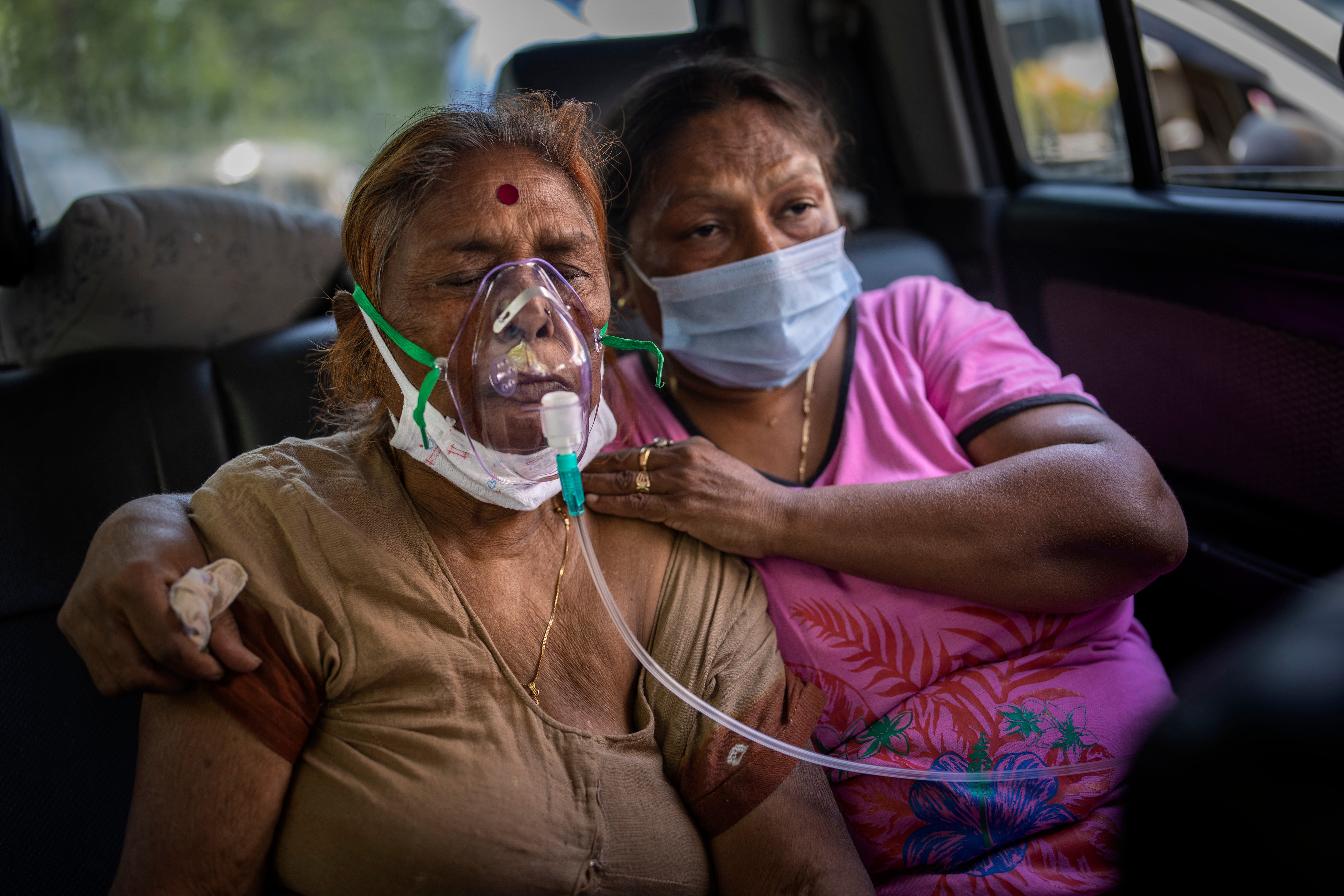AP PHOTOS: Oxygen demand outstrips supply in India hotspots

Your support helps us to tell the story
From reproductive rights to climate change to Big Tech, The Independent is on the ground when the story is developing. Whether it's investigating the financials of Elon Musk's pro-Trump PAC or producing our latest documentary, 'The A Word', which shines a light on the American women fighting for reproductive rights, we know how important it is to parse out the facts from the messaging.
At such a critical moment in US history, we need reporters on the ground. Your donation allows us to keep sending journalists to speak to both sides of the story.
The Independent is trusted by Americans across the entire political spectrum. And unlike many other quality news outlets, we choose not to lock Americans out of our reporting and analysis with paywalls. We believe quality journalism should be available to everyone, paid for by those who can afford it.
Your support makes all the difference.India’s medical oxygen shortage has become so dire that a Sikh house of worship began offering free breathing sessions with shared tanks to COVID-19 patients waiting for a hospital bed.
They arrive in their cars, on foot or in three-wheeled taxis, desperate for a mask and tube attached to the precious oxygen tanks outside the gurdwara in a neighborhood outside the capital, New Delhi
After having largely tamed the virus last year, India is in the throes of the world’s worst coronavirus surge and many of the country’s hospitals are struggling to cope with shortages of beds, medicines and oxygen.
The gurdwara management has promised to provide free oxygen to patients until they can be admitted to a hospital. Teams of volunteers check oxygen levels of newly arrived patients and provide what they need.
The gurdwara started the initiative Thursday evening, and by Friday evening had seen over 700 patients come through, reported The Hindu newspaper.
Most hospitals in India aren’t equipped with independent plants that generate oxygen directly for patients, primarily because they require an uninterrupted power supply, which is a rarity in many states.
As a result, hospitals typically rely on liquid oxygen, which can be stored in cylinders and transported in cryogenic tankers. But amid the surge, supplies in hard-hit places like New Delhi are running critically short.
Last year, India kept its hospitals sufficiently stocked by diverting oxygen from industries that were shuttered by one of the world’s strictest virus lockdowns. As Indians were cooped up indoors for months, industrial tanks were repurposed for medical use. Tanker trucks raced over empty highways to transport oxygen across the vast country to hotspots.
But with the current wave, blamed on a highly contagious variant that has spread quickly and widely without the limiting benefit of a nationwide lockdown, the situation is different.
Scores have died in hospitals in India’s capital amid suggestions that low oxygen supplies were to blame. Doctors have taken to social media to beg public authorities to get them resupplied, and the government has mobilized to bring oxygen supplies by train, plane and truck.
The demand for oxygen from hospitals has nearly tripled to 8,000 metric tons (8,800 tons), the federal government told the Delhi High Court last week. India’s total production was 7,500 metric tons of oxygen per day.
Most of India’s oxygen production capacity is centered around industries, many of which are concentrated in India’s eastern states. The current surge in infections is in the northern and western states.
Saket Tiku, president of the All India Industrial Gases Manufacturers Association, said the biggest challenge has been transporting oxygen to where it's urgently needed.